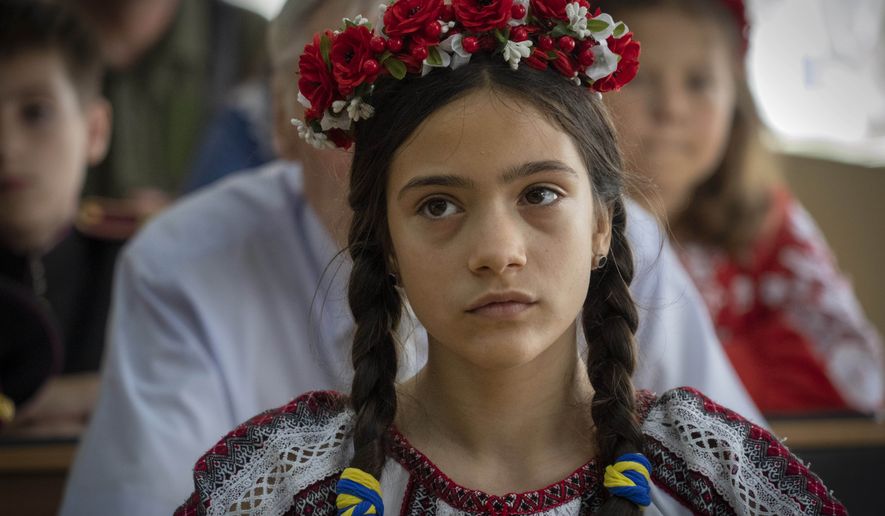Russia is detaining and deporting thousands of Ukrainians through more than a dozen so-called “filtration centers” scattered throughout eastern Ukraine and western Russia, U.S. officials have confirmed.
The high-security camps are meant to identify anyone considered an opponent of Russian President Vladimir Putin’s five-month-old invasion of Ukraine.
The existence of at least 18 camps was confirmed in a recently-declassified memorandum by the National Intelligence Council. On Friday, a senior defense official at the Pentagon called the report “chilling.”
“Ukrainians there are subject to inhuman conditions, including abuse and in some cases, executions,” the defense official told reporters.
The filtration process includes temporary detention, data collection, interrogation, and in some cases, physical abuse of detainees.
Of the people sent to the centers, those deemed non-threatening may be issued documentation and be permitted to remain in Russian-occupied areas of Ukraine. Others considered potentially resistant to the Kremlin’s occupation face forcible deportation to Russia and are subject to additional screening, intelligence analysts said.
“Those deemed most threatening during the filtration process, particularly anyone with an affiliation to the military or security services probably are detained in prisons in eastern Ukraine and Russia, although little is known about their fates,” the National Intelligence Council report stated.
Officials in Ukraine said they don’t have exact numbers of how many people have been sent into the filtration center process. But the number is believed to be extensive.
Pentagon officials said their most recent information indicates that about 1,700 Ukrainians were sent to the camps in April.
“I would imagine that number is significantly higher,” the senior defense official said. “We have seen reports of individuals who are being detained and put into this detention process via the filtration centers facing torture, threats of gender-based violence, harassment, and even execution.”
At a leadership conference in Seoul, South Korea on July 13, Ukrainian President Volodymyr Zelensky said of the camps, “All those deported people are deprived of means of communication, their documents are taken away from them, they are intimidated and taken to remote areas of Russia to make it as difficult as possible for them to return to their homeland.”
“Tens of thousands of people remain there. Young women disappear there. I think you all understand what is happening with them there,” Mr. Zelenskyy said.
The screeners at the filtration centers inspect detainees for “nationalistic” tattoos, photograph them and take their fingerprints. The Russian authorities have confiscated passports, searched cell phones, and downloaded contacts.
Russia is getting help from unidentified “proxy groups” with their detention and deportation camps. The operations have expanded during the course of the conflict, intelligence officials said.
“So many of our people have already been taken to Russia,” Mr. Zelenskyy said. “How will we then take our people back from all those places where (they) were forcibly deported?”
• Mike Glenn can be reached at mglenn@washingtontimes.com.




Please read our comment policy before commenting.